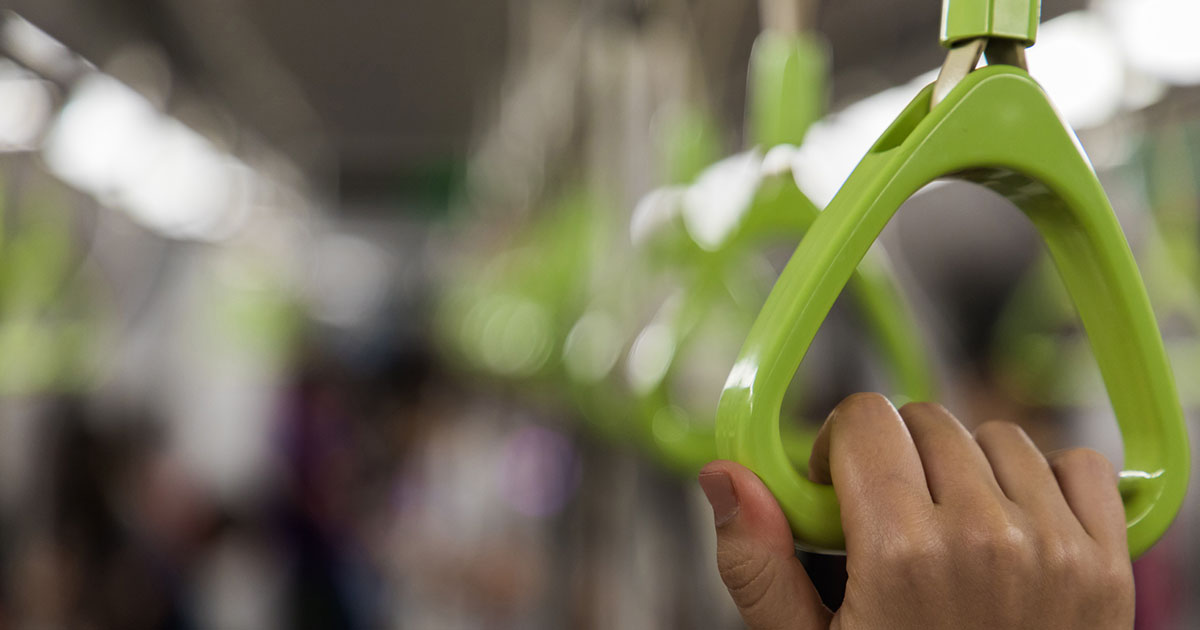
Turn on the news and coronavirus (COVID-19) is the headline. The U.S. has lagged the rest of the world in testing for coronavirus, so get ready to hear even more breaking news about the virus. Baffled about what to do? No problem.
Much like the common cold or the flu, which are other forms of coronavirus, there’s a lot you can do to minimize your risk of getting the virus. Before you barricade yourself in your bedroom, here are 7 tips that are effective at helping to keep your family and you healthy.
Clean your hands often—and deliberately! An alcohol-based hand sanitizer kills germs instantly and if you’re like most of us, you’ve probably got one in your purse or pocket. Just be sure to use enough to fully cover the area you wish to disinfect. Handwashing is what we’ve learned since we were little, but this is one habit you don’t want to rush. Use lots of soap and warm water, lather your entire hand, and scrub for at least 20 seconds to remove the germs from your skin. Make it a habit to handwash throughout the day, especially after going to the bathroom; before eating; and after blowing your nose, coughing, or sneezing.
Break the habit of shaking hands and giving high-fives, mostly because you’re likely to touch your face afterward. Stop touching your face. An average person may touch his or her face (eyes, nose, mouth) an average of 23 times per hour! “If you never touch your facial mucous membranes, you’re less likely to be sick again from any viral respiratory infection,” says Dr. William P. Sawyer, family physician, and creator of HenrytheHand.com (a hand hygiene behavior change program).
Viruses similar to coronavirus spread through cough and sneeze droplets, as The Guardian reports. Avoiding close contact with people who are sick is a good proactive approach you should take to steer clear of any condition.
Avoiding touching surfaces and items that many others handle is smart. Think railings, doorknobs, elevator buttons, etc. Clean and disinfect frequently touched objects and surfaces using a regular household cleaning spray or wipe. Also, remember to keep your hands to yourself whenever possible.
Covering your mouth prevents the spread of infectious germs. When you cough or sneeze into your hands, you then transmit germs to everything you touch. By sneezing into your elbow, not only are you reducing the chance of transmitting germs, but you’re also reducing the spread of droplets. Coughing can spread droplets as far as 19 feet and sneezing can send droplets even farther. If you don’t fully cover your cough or sneeze, the droplets that escape not only travel far, but they also remain in the air for up to 10 minutes! Coughing or sneezing into a tissue is also recommended, just make sure you remember to throw the tissue in the trash afterward.
There’s no place like home, so please stay there when you’re sick. It’s a courtesy to others and it helps limit your exposure to other illnesses when your immune system may already be working overtime.
People are buying face masks like they are going out of style. What seems like a smart precaution is just the opposite. Most masks people are stockpiling won’t block out those tiny particles that transmit the illness in the first place. Plus, most people who find the popular N-95 mask still aren’t trained in how to use them properly to avoid contamination. Save your time and money, and follow CDC’s recommendations for using a facemask.
Most healthy people will be fine if they contract coronavirus; some get no symptoms at all. The elderly and infirm may feel the most impact from this illness. Seek early medical help if you have a fever, cough, difficulty breathing, or other cold and flu symptoms. Also, be prepared to share your travel history with healthcare providers.
If you’re experiencing COVID-19 symptoms or have serious concerns about infection, please notify our team before visiting or use vybe’s telemedicine service to see a doctor online. If you are not experiencing symptoms, stay home and continue social distancing.
FIND YOUR VYBE